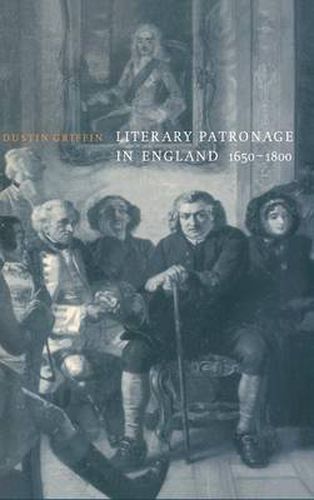Readings Newsletter
Become a Readings Member to make your shopping experience even easier.
Sign in or sign up for free!
You’re not far away from qualifying for FREE standard shipping within Australia
You’ve qualified for FREE standard shipping within Australia
The cart is loading…






This is the first comprehensive study of the system of literary patronage in early modern England and it demonstrates that far from declining by 1750 - as many commentators have suggested - the system persisted, albeit in altered forms, throughout the eighteenth century. Combining the perspectives of literary, social and political history, Dustin Griffin lays out the workings of the patronage system and shows how authors wrote within that system, manipulating it to their advantage or resisting the claims of patrons by advancing counter-claims of their own. Professor Griffin describes the cultural economics of patronage and argues that literary patronage was in effect always ‘political’. Chapters on individual authors, including Dryden, Swift, Pope and Johnson, as well as Edward Young, Richard Savage, Mary Leapor and Charlotte Lennox, address the author’s role in the system, the rhetoric of dedications and the larger poetics of patronage.
$9.00 standard shipping within Australia
FREE standard shipping within Australia for orders over $100.00
Express & International shipping calculated at checkout
This is the first comprehensive study of the system of literary patronage in early modern England and it demonstrates that far from declining by 1750 - as many commentators have suggested - the system persisted, albeit in altered forms, throughout the eighteenth century. Combining the perspectives of literary, social and political history, Dustin Griffin lays out the workings of the patronage system and shows how authors wrote within that system, manipulating it to their advantage or resisting the claims of patrons by advancing counter-claims of their own. Professor Griffin describes the cultural economics of patronage and argues that literary patronage was in effect always ‘political’. Chapters on individual authors, including Dryden, Swift, Pope and Johnson, as well as Edward Young, Richard Savage, Mary Leapor and Charlotte Lennox, address the author’s role in the system, the rhetoric of dedications and the larger poetics of patronage.